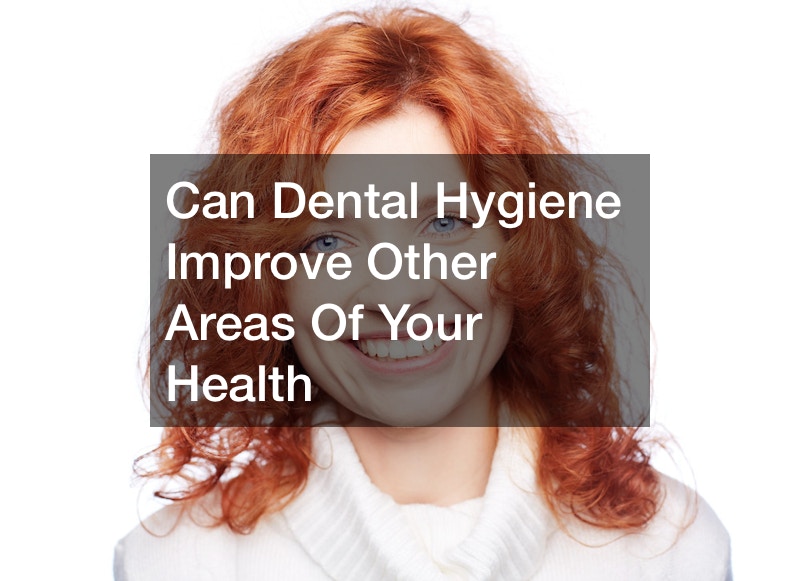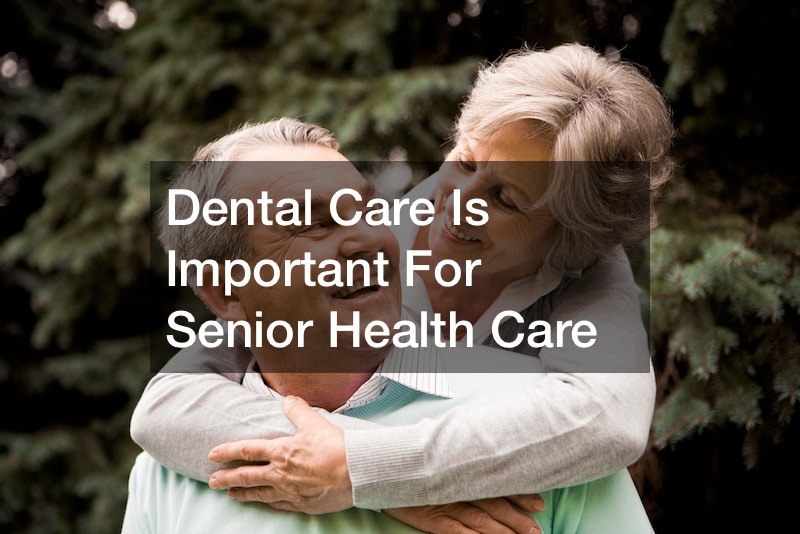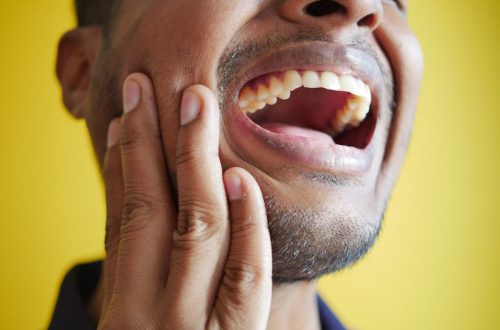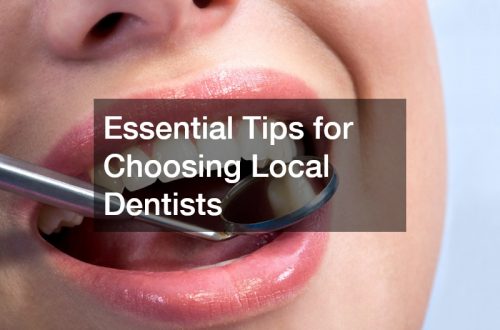What does dental hygiene have to do with your health? This is a question that may not often be asked. It’s often not obvious that our physical health and well-being are important factors when we look at our teeth and gums. Most people don’t think of dentistry as a part of their overall health.
Today’s article will discuss the impact of oral care on your health, both senior and pediatric.
How does dental hygiene impact your life?
Even though they don’t seem to be related, oral hygiene and dental health play an important role in your overall health and well-being. It’s true that everything begins with what you put in your mouth. It is important to take care of your gums and teeth. If your gums and teeth are unhealthy, it can have a negative impact on your overall health. Looking for teeth straightening and whitening near me can help improve your health in many other ways. Read on to learn more.
Because our mouths are full of bacteria, neglecting to care for your teeth can lead to bacterial infections and other health problems. This can often be caused by an ‘overgrowth of bacteria, which leads to it spreading.
Researchers have discovered that oral cancer can be caused by poor oral hygiene. Patients who have been diagnosed with the disease can visit a cancer center to get the treatment they require. These causes can be explained to others and help them cope with oral cancer.
When people look at your whole face, the first thing they notice is your mouth. Good teeth can boost self-esteem and confidence at all levels.
What are the Factors that Lead to Bad Teeth and Later Possible Poor Health?
Every year, there are many conditions and illnesses that affect the population. It is crucial to take care of your health. Not only is your physical health important, but also your dental health.
Here are some things that can lead to poor oral health.
Here are some of the problems that dental hygiene can cause for your health
Orthodontic treatment may be required for crooked or other conditions affecting the jaw and bones.
If you have poor oral health or are at risk for developing any of these complications, consult a dentist.
Bad oral hygiene can lead to heart disease. Although the heart and mouth are not usually connected, they do have an impact. The bacteria in the mouth that can cause heart disease can filter into the bloodstream through the bloodstream.
Gum disease and coronary heart disease
This is a problem, but long-term smokers may also be at risk for developing heart problems. Smoking is directly linked with coronary heart disease, as well as loss of teeth and weakening bones in the jaw. Oral cancer is a serious risk for some long-term smokers.
Periodontal disease is often caused by poor oral hygiene. It can happen in a very short time or it can be a long-term problem. There are several signs that indicate periodontal disease, including but not limited to:
Bleeding gums
Sensitive, swollen gums
Bad breath
Sensitivity to severe tooth pain
Loose teeth (even good teeth)
Receding gums could expose the roots if it is not treated.
When you are rinsing your teeth often, water treatment and water service can help to prevent tooth decay. Fluoride may be added to water by water treatment centers to improve oral health.
Water may help maintain or improve your oral health, provided that you floss regularly. Although H2O may reduce dryness in the mouth (which is also bad for your gums and teeth), lubricating your mouth can improve your saliva.
Link to dementia
Research shows that poor oral health can lead to tooth loss and early dementia. Research shows that losing your teeth can lead to a decline of cognitive function in some people. Experts believe that tooth loss can lead to dementia. However, the reason for this is not clear.
It has been observed that certain chemicals may be unbalanced, and this can manifest as a problem when you eat. Research suggests that beta-amyloids may cause inflammation in the brain. Beta-amyloids, a type of bacteria that can develop in the brain and is associated with dementia in patients, is thought to originate primarily from the mouth.
Pregnancy complications and birth complications
Poor oral health can cause many problems, including complications during pregnancy and birth. The CDC estimates that one in four pregnancies will have a complicated delivery. This is because the baby may be underweight, or prematurely born due to poor oral health. According to their findings, at least 44% of pregnant women suffer from dental problems that cannot be treated.
Gingivitis is a severe gum disease that affects 60% to 75% of women. It can cause tooth loss, bleeding gums, and bad breath that won’t stop.
There is a high risk of contracting pneumonia
Another reason dental hygiene can impact your health is pneumonia. Pneumonia can sometimes be caused by bacteria that has formed in the mouth from poor oral hygiene. You don’t have to be perfect in your oral hygiene. You just need to be consistent with your oral hygiene.
Pneumonia can be caused by bacteria. It can cause all sorts of problems if there is too much bad bacteria, such as an overgrowth of these microorganisms. If bacteria in your mouth spreads to other parts of your body, it can infect the respiratory system. It can also spread to the heart and other major organs.
Diabetes and teeth – Poor oral health can be linked to diabetes
How can oral hygiene affect your diabetes health? Diabetes refers to a condition or disease that prevents the body’s ability to make insulin naturally. Without insulin, blood sugar levels are higher.
Too many sweet treats can be harmful to your teeth and increase the risk of developing diabetes.
How does dental hygiene impact your health and how to keep it healthy
Your overall health and wellbeing can be affected by your dental habits. You can start to maintain a healthy smile and see your dentist regularly.
Brush your teeth at least twice daily
Brushing your teeth twice a day is crucial.
You can do this in the morning, and at night. You can also decide how to combine the two
You can adjust your daily routine to suit your needs several times per day. This is an important step to avoid constants
Sticky plaque is a result of bacteria.
Cavities and other issues such as periodontal disease.
Everyday Floss
Although flossing twice daily may not seem like a priority, flossing at least once per day can help keep your gums and teeth healthy. The amount of plaque buildup between teeth is minimized by flossing, especially if the toothbrush can’t reach them.
At least twice per year, visit your dentist
Both adults and children need to care for their teeth all through their lives. It is the most important part of digestion and one of the most durable. Our confidence and our smiles depend on them. Pediatric dentistry might offer a different approach, as these are the foundation teeth that little ones have after their milk teeth have fallen out.
The best thing for your teeth is to visit a dentist. Orthodontics is a specialist in helping people with braces reach those difficult-to-reach places in their mouths.
Sugary candy should be avoided
It’s fine to enjoy sweet treats from time to time, but too many is bad for your dental health. Sugar is one of the worst things that can cause cavities because it feeds bacteria attached to your teeth.
Stop smoking
No matter how bad or good a habit is, it can be difficult to quit. Smoking is a leading cause of poor oral health, and is often linked to other health conditions. It’s better to quit smoking as soon as possible. Although you may not be able to quit smoking completely, it is possible to reduce the number of cigarettes that you smoke each day.
Change your toothbrush regularly
Your toothbrush is an important part of maintaining healthy teeth and gums. It’s important to replace it when you get sick. A toothbrush’s ability to clean properly can diminish over time. Similar to a broom. Experts recommend that toothbrushes be changed every three months.
Soft bristles are better than hard
You can’t just use any toothbrush when it comes to toothbrushes. It is important to choose a toothbrush that fits your mouth. Keep the bristles in your mind. People believe that medium or hard bristles are safe to use. After all, they are available in shops. However, harder bristles can cause damage to teeth and gums. Side effects can be unnecessary, such as sore gums or sensitive teeth.
Soft bristles are better than a hard bristled toothbrush. It is important to brush your teeth for the right amount of time. Your toothbrush should not be used to force your teeth.
Use a circular brushing motion with a smaller toothbrush head
A smaller toothbrush head will give you more reach into your mouth. Electric toothbrushes also have small, round heads.
The electric toothbrush works in circular motions. However, you can brush your teeth manually as well. This is important because it reduces the abrasive effects that toothbrushes can have on your gums and teeth. Instead of going back and forth, use circles to clean your mouth more thoroughly and not damage it in the long-term.
For our health and well-being, our teeth are one of the most important aspects of our lives. Teaching children how to take good care of their teeth from an early age is crucial. Children should feel comfortable visiting the dentist. They should not view going to the dentist’s office as something they have to do or be punished for doing so.
Some people fear the dentist so much that they feel unsafe at the dentist even after adulthood.
For more information, speak to your dentist or registered nurses. The cost of treatment at a cancer center might be lower than in other options. Research the dentist to find out how many years of experience they have. It’s possible to work with students dentists if you have a limited budget. However, students and new dentists may make more mistakes than they can fix.
A chiropractor might be able help you find relief from pain without the need for over-the-counter medications. Water softener is better than hard water for your teeth and skin.






